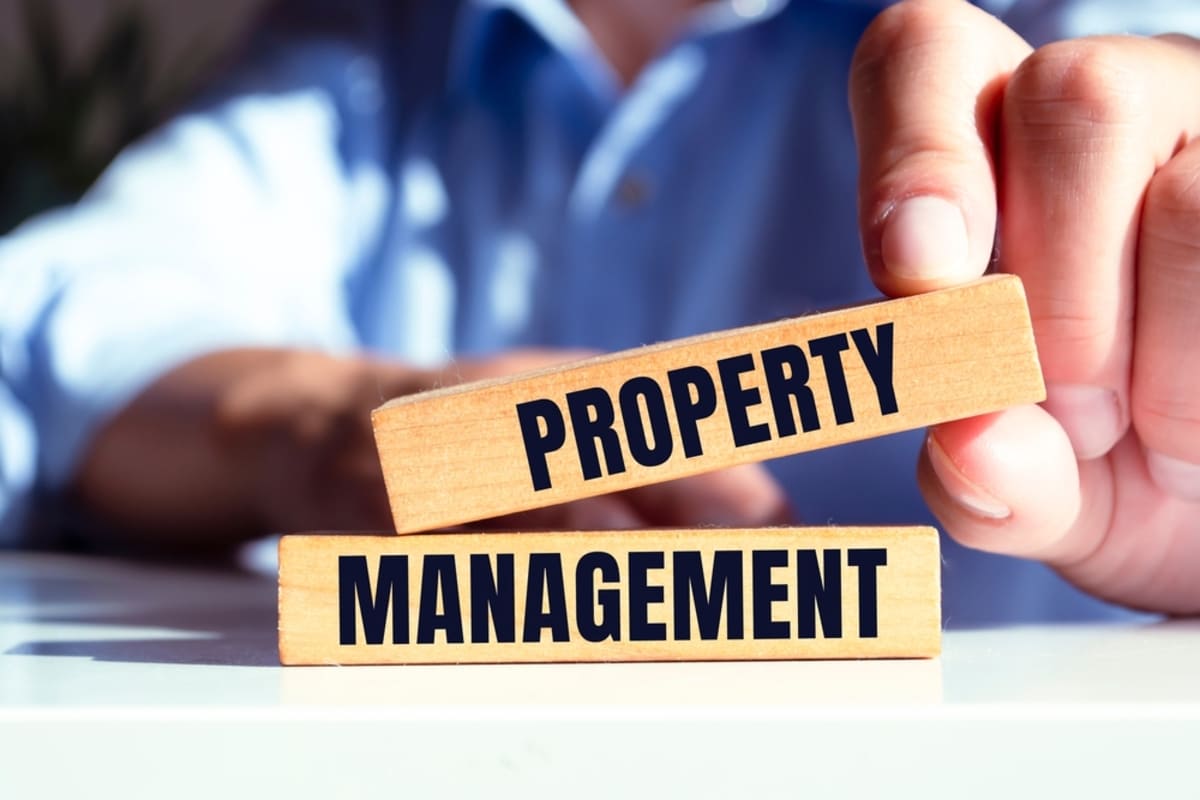
Are you finding it hard to manage a growing commercial real estate portfolio? If so, it may be beneficial to enlist the help of a property manager to help you handle your investments.
Although this may seem like an additional expense, in this blog from our experts at Brian Properties, we'll explain how hiring a property manager can prove to be profitable down the line.
So, continue reading to learn how a property management company can help you with marketing, tenant management, maintenance, investment strategies, and more.
The Benefits of Hiring a Professional Property Manager
When managing your Chicago commercial real estate portfolio, the right professional can make all the difference.
A skilled property manager handles day-to-day operations and helps boost profitability and efficiency.
Saving Time and Reducing Stress
Being a landlord isn't just about collecting rent checks. It involves handling repairs, dealing with tenant issues, and ensuring compliance with local regulations. These tasks can quickly become overwhelming, especially if you own multiple properties or have other responsibilities.
Hiring a professional property manager lets you delegate these tasks so you can focus on growing your investment instead of getting lost in paperwork or midnight repair calls.
Increase Profitability Through Expertise
A common misconception is that hiring a property manager will cut into profits. However, what if they could increase them instead? Experienced managers have their finger on the pulse of market trends, allowing for strategic pricing decisions that maximize rental income without scaring away potential tenants.
Additionally, because they understand the legalities involved in leasing commercial spaces like yours, avoiding costly fines or lawsuits becomes easier.
Tenant Retention and High Occupancy Rates
Tenants are more likely to renew their leases when an effective management team is at the helm who promptly addresses concerns—from leaking faucets to noisy neighbors.
This leads to higher occupancy rates over time, translating directly into steady revenue streams for landlords.
Professional Marketing and Tenant Screening
A vacant unit is like an open cash register drawer. Discovering occupants is not just about getting anyone; it's about locating the right ones. Property managers have tried and tested marketing strategies to attract prospective renters.
Their screening process also ensures you get reliable, long-term tenants who pay on time and take care of your property—reducing potential issues.
Maintenance and Repairs
Carrying out routine maintenance checks is super important. It's the key to keeping everything running smoothly and avoiding any big problems down the line.
How Much Do Property Managers Charge?
Comprehending the expenses of recruiting a commercial property administrator is essential for forming an educated judgment concerning your real estate portfolio.
Upfront and Ongoing Fees
Typical property management fees range from 5% to 10% of the monthly rent for residential properties.
These percentages may vary based on the type and size of property managed for commercial properties. However, this isn't the only cost you should consider when hiring a professional manager.
In addition to their base fee, many property managers charge extra for services like tenant placement or eviction handling. These costs are often passed along as additional expenses beyond the regular management fee.
Ensure to check all possible charges before agreeing, as the overall cost may be higher than initially perceived.
Potential ROI From Professional Management
Hiring a professional manager comes with its benefits, which could potentially outweigh its initial cost over time.
A well-managed property attracts higher-quality tenants who stay longer and take better care of your assets. This translates into lower turnover rates and fewer vacancies, resulting in more stable income streams over time than self-management scenarios where inexperienced landlords might struggle with effective tenant screening processes or legalities around evictions due to non-payment.
Evaluating Your Time and Effort
Another aspect to consider is the value of your own time.
If you're spending hours each week dealing with property management tasks, those are hours not spent on growing your business or pursuing other investment opportunities.
The Hidden Costs: Legal Issues and Compliance
Ensuring conformity to regulations is not just about crunching figures but also adhering to the protocols.
Before making a final decision, check references and reviews of potential property managers. Reach out to their current and past clients to get a sense of their reputation and level of satisfaction.
Online reviews can also provide valuable insights into their performance and reliability.
 Mistakes to Avoid During the Hiring Process
Mistakes to Avoid During the Hiring Process
It's essential to take the time and avoid missteps that could result in selecting an unsuitable property manager.
Here are some pitfalls to watch out for.
Rushing the Decision
Don't rush the decision-making process. Take the time to thoroughly research and interview multiple candidates. Rushing can lead to overlooking factors and making a hasty decision that may not be in the best interest of your portfolio.
Not Checking Credentials
Always verify the credentials and licenses of potential property managers. Look for certifications like Certified Property Manager (CPM) or Real Property Administrator (RPA), which guarantee they possess the vital understanding and proficiency to manage your commercial properties.
Ignoring Communication Skills
Effective communication is vital in any business relationship.
Make sure the property manager you choose has excellent communication skills and is responsive to your inquiries and concerns. Poor communication can lead to misunderstandings and delays in addressing issues.
Overlooking Transparency
Transparency is essential when it comes to managing your real estate portfolio. A good property manager should provide regular updates and be transparent about financial matters, tenant relations, and any potential issues that may arise.
Avoid hiring someone who is not forthcoming with information.
Not Considering Compatibility
Lastly, consider the compatibility between you and the property manager. Building a strong working relationship is essential for long-term success. Search for a company with the same ideals, comprehends your objectives, and is ready to cooperate to attain them.
By following these guidelines and avoiding common hiring mistakes, you can find the right commercial property manager who will help optimize your real estate portfolio and maximize your profits.
Transitioning to a Commercial Property Manager
Moving the responsibilities of your real estate portfolio to a commercial property manager can feel daunting, yet it can be achievable if you have the correct information and attitude.
Preparing Your Business for Transition
To ensure your transition is smooth, begin by assessing all aspects of your business that will be affected. This includes tenant relations, lease agreements, maintenance schedules, and vendor contracts.
Organize all essential documents related to each asset in your portfolio. The more complete this documentation is when handed off, the easier it will be for new managers to navigate their responsibilities effectively.
Selecting A Management Firm
Think carefully when choosing a firm that meets your business objectives, not just based on cost.
This means evaluating firms based not just on cost but also experience levels in dealing with similar portfolios like yours or even specialist expertise offered by companies such as Brian Properties Inc., which has been operating since 1973.
What may seem cheaper now might cost more later due to a lack of professional handling.
Navigating Contractual Agreements
The contract between yourself and your chosen management company needs careful attention since these legally binding agreements define terms of services rendered along with expected standards of performance.
Before signing, ensure you understand every clause by inquiring about any ambiguities.
Once you've signed the dotted line, ensure your property manager has all the necessary information. Give them access to tenant records, maintenance reports, and other relevant documents.
Fostering Effective Communication
The relationship with a commercial property manager doesn't have to be complicated. Let's work together for better results.
 Enhancing Property Value with Professional Management
Enhancing Property Value with Professional Management
One of the top strategies for boosting property value is through professional management. However, what does that mean, and how can it give your commercial properties a profitable lift?
The Role of a Professional Manager
A proficient property manager doesn't just oversee day-to-day operations; they are crucial strategists in enhancing the worth of your assets. They use their wealth of industry knowledge to spot opportunities for growth and implement effective measures.
In practice, this could look like renegotiating contracts to reduce costs or identifying ways to improve energy efficiency, thereby cutting down on utility expenses.
Both these actions directly contribute to increasing net operating income (NOI), positively impacting property value.
Rent Optimization
Another critical aspect where managers help is rent optimization—not too high to deter potential tenants but not so low that it affects profitability either. A good manager will understand market dynamics, helping set rents at competitive rates while maximizing returns from your real estate portfolio.
Tenant Retention Strategies
Beyond setting optimal rents, maintaining high occupancy levels also enhances asset values. Experienced managers work towards tenant satisfaction because happy tenants tend to stay longer—reducing turnover costs and ensuring steady rental income.
-
An emphasis on quick response times for maintenance requests helps satisfy tenants by showing them their comfort matters.
-
Promoting community events fosters a sense of belonging among occupants.
-
Frequent communication about upcoming improvements or changes builds trust between all parties involved.
By implementing these tenant retention strategies, a professional property manager helps foster a healthy landlord-tenant relationship, contributing to property value enhancement in the long run.
Efficient Maintenance Practices
Regular maintenance is essential to preserve property value, but it's more than just keeping things looking nice. Preventive measures can help avoid costly repairs down the line.
Property managers know when and what needs attention—from HVAC systems to roof inspections, they make sure everything gets done promptly. The cost savings from preventive upkeep further add up to increased NOI and property value.
Hire a Commercial Portfolio Manager For Long-Term Profitability
Managing a commercial real estate portfolio can be intimidating, but it doesn't have to be that way; enlisting the help of an experienced property manager ensures you no longer are working alone.
At Brian Properties, we bring over four decades of experience in commercial property management to your team. We understand the unique challenges and opportunities in the industry, and our comprehensive suite of services is designed to address all your property management needs.
From marketing the property and screening tenants to maintenance coordination and financial reporting, we handle it all. Our dedicated and professional team is committed to providing the highest level of service to both property owners and tenants.
By partnering with us, you can focus on growing your investment while we ensure that your properties are managed efficiently and effectively.
Contact us today if you're interested in learning more about our services.
Similar Posts
Apr
Commercial Property Management Companies: Pros and Cons for Chicago Investors
After investing in commercial real estate, investors have two possible options: self-manage or utilize the services of a commercial property...
Mar
The Benefits of a Chicago Commercial Property Management Company
Once you add up all the time, legal obligations, accounting, compliance, maintenance emergencies (and a lot more), commercial property investing can...
May
How to Grow Your Commercial Real Estate Portfolio
Entering the commercial real estate investing industry can be daunting but offers significant returns on investment if approached strategically.
...



